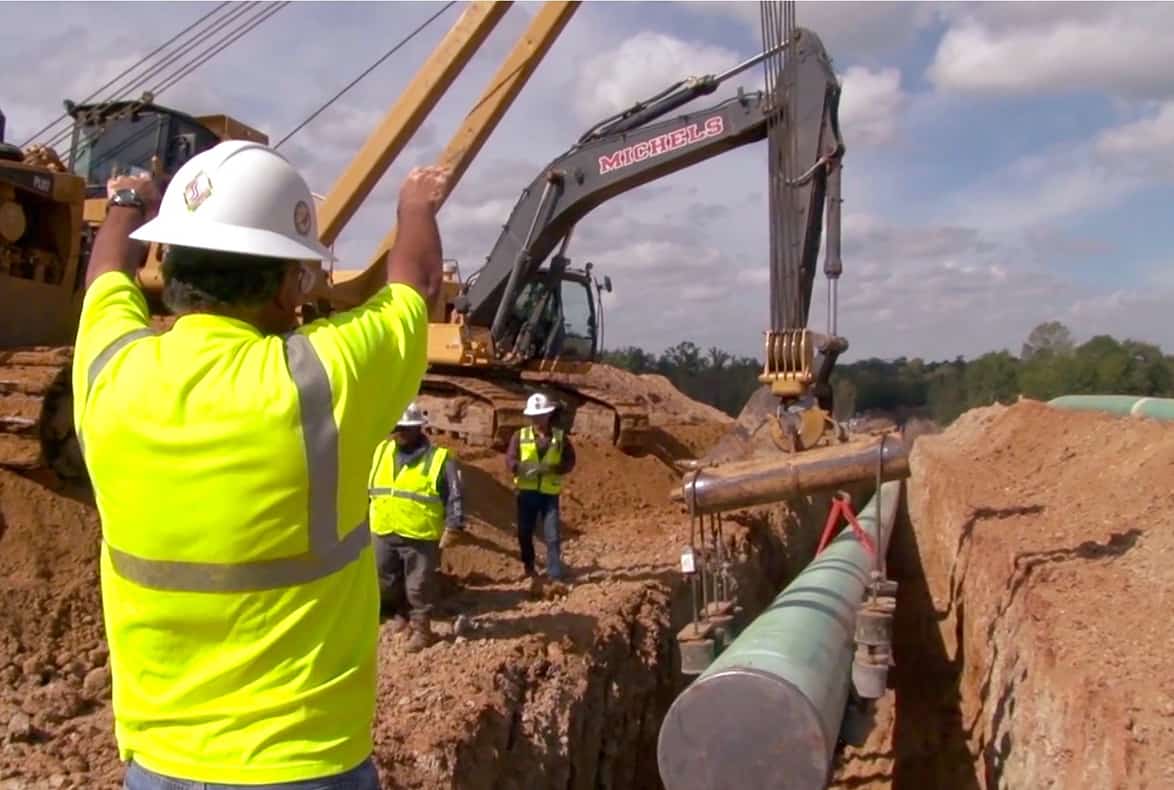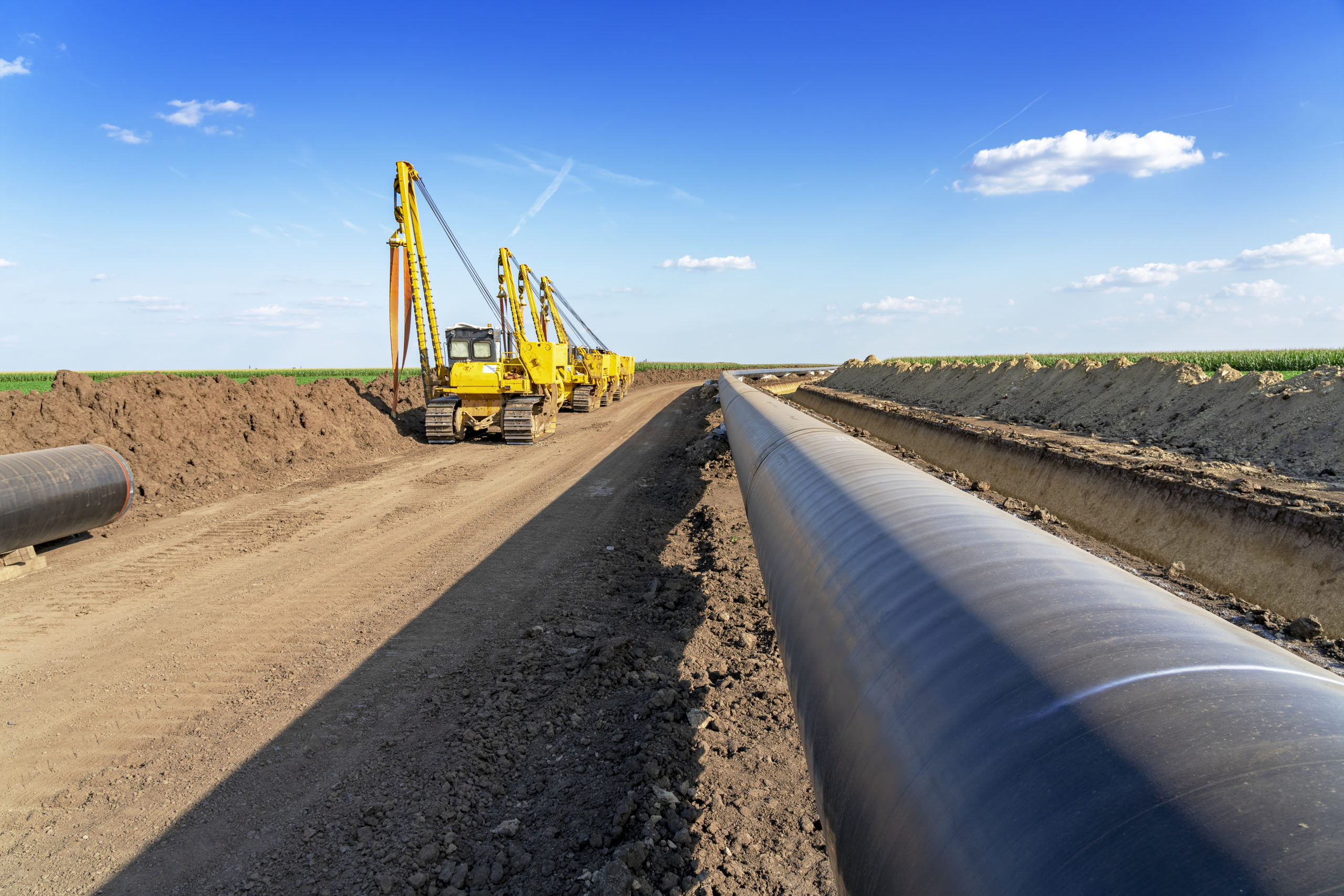The Top Innovations from Creek Pipe Pipeline Construction You Should Know About
Wiki Article
A Comprehensive Overview to Recognizing Pipes and Their Duty in Building and construction
Pipes are essential parts in construction, serving essential functions in gas, water, and waste management. Their selection and application can substantially influence a building's efficiency and safety. Different products, such as PVC, copper, and PEX, offer unique advantages matched to certain needs (Creek Pipe Texas). Comprehending these factors is vital for any building and construction task. As one discovers the details of pipes, the ramifications for conformity and public health come to be increasingly noticeableThe Value of Pipes in Building
Pipes work as crucial conduits in building and construction, facilitating the activity of water, gas, and waste throughout structures and framework. Their duty extends past plain transportation; they are important for guaranteeing the functionality and safety and security of domestic and business settings. Properly installed pipelines contribute to the efficient distribution of sources, allowing everyday activities such as food preparation, home heating, and showering. Moreover, pipelines play an essential role in waste administration, making sure that sewage and wastewater are efficiently removed from living spaces.The relevance of pipes is also reflected in their effect on public health. Defective or insufficient piping systems can lead to contamination and unsafe problems, making quality materials and installment techniques necessary. In addition, pipes need to abide with various structure codes and regulations, which are developed to protect both passengers and the setting. As a result, the significance of pipelines in building and construction incorporates both useful functionality and important health considerations.Kinds Of Water Lines Utilized in Building Projects
Different kinds of pipes play a significant duty in structure projects, each designed to fulfill particular needs and applications. Amongst one of the most typically used pipeline types are PVC, which is light-weight and resistant to corrosion, making it ideal for drain and vent systems. CPVC pipelines, similar to PVC, can hold up against higher temperature levels, typically utilized in warm water systems. Copper pipelines are understood for their resilience and integrity, often used in plumbing and home heating applications. Galvanized steel pipes, while much less typical today, were as soon as a standard for water supply lines because of their strength. Furthermore, PEX (cross-linked polyethylene) pipelines are acquiring appeal for domestic pipes as a result of their adaptability and resistance to scaling and chlorine. Cast iron pipelines are preferred for their sound-dampening homes, generally used in waste and soil systems. Each pipeline kind offers distinct functions, making certain efficient operation in building tasks.Usual Materials for Pipeline and Their Quality
In construction, the choice of pipe materials is important for making certain resilience and performance. Steel pipelines supply toughness and resistance to high stress, while plastic pipelines provide corrosion-resistant and lightweight options. Composite pipes integrate the benefits of both materials, making them versatile options for various applications.Metal Pipe Options
Metal pipes are integral components in construction, offering a series of options that satisfy ecological problems and different applications. The most common products consist of steel, copper, and cast iron. Steel pipelines are understood for their stamina and durability, making them suitable for high-pressure applications. Copper pipelines are preferred for their rust resistance and antimicrobial residential or commercial properties, typically utilized in plumbing systems. Cast iron pipes provide exceptional noise insulation and are excellent for waste and water drainage systems. Each steel type has distinct benefits; for instance, galvanized steel can withstand rust, while stainless-steel supplies remarkable rust resistance. Selecting the ideal steel pipe relies on aspects such as expense, environmental direct exposure, and the particular requirements of the building and construction job.
Plastic Pipeline Advantages
Plastic pipes have obtained popularity in building and construction because of their light-weight nature and flexibility. These pipelines, made from materials such as PVC, CPVC, and PE, offer superb resistance to rust and chemical damages, making them suitable for different applications. Their convenience of installation additional boosts their charm, as they can be reduced and joined without unique devices. Additionally, plastic pipelines are usually much more cost-efficient compared to metal choices, adding to lower general job expenditures. Their smooth interior surfaces minimize rubbing and boost flow rates, while insulation properties assist preserve temperature level control in pipes systems - Creek Pipe Company. With a large range of dimensions and configurations readily available, plastic pipes efficiently satisfy the varied demands of modern-day construction jobsComposite Pipe Characteristics
Composite pipes integrate different materials to take advantage of their private staminas, leading to improved efficiency and longevity. Typically, these pipes contain layers that might consist of steels, ceramics, and plastics, each contributing unique residential or commercial properties. The internal layer may be made of a corrosion-resistant material, while the outer layer gives toughness and effect resistance. This combination allows composite pipelines to hold up against extreme temperatures and stress, making them ideal for a variety of applications, including water supply and commercial processes. Additionally, composite pipelines are commonly lighter than standard materials, promoting much easier handling and setup. Their versatility and flexibility to different environments make them a favored choice in modern-day building projects, making certain durability and efficiency in liquid transport systems.Applications of Piping in Pipes Systems

Electrical Channels: The Role of Water Lines in Wiring
In modern-day building, electric avenues play an essential duty in making sure the secure and effective routing of electric circuitry throughout buildings. These pipes supply a safety pathway for electrical cords, safeguarding them from physical damage and environmental variables. Various materials, such as PVC, metal, and adaptable avenues, are utilized depending upon the certain demands of the installation.Furthermore, conduits help in organizing electrical wiring systems, lowering the risk of electrical risks like brief circuits or fires. They additionally promote easier maintenance and upgrades, as cables can be accessed and changed without substantial disturbance to the structure.Proper installment of electric avenues is vital for read the full info here compliance with building ordinance and safety policies. This structured strategy not just boosts the longevity of the electrical system but additionally adds to the total safety and security and functionality of the structure, making electric avenues crucial in modern-day building and construction techniques.Picking the Right Pipeline for Your Job
Exactly how can one guarantee the right pipe selection for a building and construction task? The choice process begins with understanding the details needs of the job, including the kind of liquids being moved, stress scores, and environmental problems. Material choices, such as Copper, pvc, and steel, ought to be reviewed based on durability, corrosion resistance, and find here thermal properties.Next, one should take into consideration the pipeline's size and circulation capacity to ascertain reliable operation. Governing requirements and codes should additionally be stuck to, as they dictate the appropriate products and methods for specific applications. Consulting with specialists and using extensive sources can even more assist in making notified decisions.Finally, reviewing the cost-effectiveness of different options is crucial, balancing preliminary expenses with long-lasting maintenance and replacement prices - Creek Pipe Pipeline Construction. By thoroughly analyzing these aspects, one can with confidence choose one of the most suitable pipe for their building and construction project, assuring both functionality and compliance
Upkeep and Assessment of Pipeline in Construction
Correct option of pipes sets the structure for their long-lasting performance, making upkeep and assessment vital components in construction. Normal maintenance guarantees that any kind of prospective issues, such as leakages, rust, or clogs, are determined and dealt with promptly, lessening costly fixings and job delays. Set up assessments, including aesthetic evaluations and pressure tests, play a vital role in reviewing the integrity of pipeline systems.Additionally, keeping track of ecological elements, such as temperature level fluctuations and dirt conditions, can assist anticipate deterioration. Making use of sophisticated modern technologies, such as CCTV for interior examinations, can enhance the efficiency of upkeep efforts. It is vital to document evaluation searchings for and maintenance activities to develop a comprehensive background of the pipeline systems. By prioritizing maintenance and examination, construction experts can prolong the lifespan of their piping systems, ensuring they run successfully and reliably throughout the job's period.Regularly Asked Questions
Exactly How Do Pipelines Influence Power Efficiency in Buildings?
Pipes substantially influence energy effectiveness in structures by managing home heating and cooling down systems. Proper insulation and materials minimize energy loss, while efficient plumbing styles lessen water use, inevitably bring about reduced power intake and functional prices.What Regulations Govern Pipe Installation in Construction?
Regulations governing pipe installation in construction usually include regional and national building ordinance, plumbing codes, and security requirements. These assurance conformity with structural stability, material specs, and health and wellness needs, promoting security and effectiveness in construction methods.Can Piping Be Recycled After Use?
The question of pipeline recyclability is substantial. Lots of products, such as metal and certain plastics, can be reused successfully. Nevertheless, the condition and kind of pipe impact recycling usefulness, requiring proper analysis before disposal.
Just How Do Weather Impact Pipeline Efficiency?
Weather considerably affect pipe efficiency. Extreme temperatures can create expansion or tightening, while moisture may bring about corrosion. Furthermore, hefty precipitation can boost dirt stress, impacting security and total functionality of the piping system.What Are the Indicators of Pipeline Failure to Look For?
Indicators of pipe failure include leakages, uncommon noises, discoloration of water, minimized water stress, and noticeable corrosion. Routine examinations can help discover these concerns early, ensuring and avoiding expensive repair services system capability in the long-term. Pipes play a critical function in waste administration, making sure that sewer and like it wastewater are properly removed from living spaces.The importance of pipes is also shown in their effect on public health and wellness. In building, the option of pipeline products is important for making certain resilience and functionality. Metal pipes offer strength and resistance to high pressures, while plastic pipes give corrosion-resistant and lightweight alternatives. In addition, pipes are used to remove wastewater, connecting bathrooms, sinks, and drains to community sewage systems or septic tanks.Different types of pipelines, such as PVC, copper, and PEX, are picked based on aspects like longevity, price, and certain application demands. How can one guarantee the appropriate pipe selection for a construction task?Report this wiki page